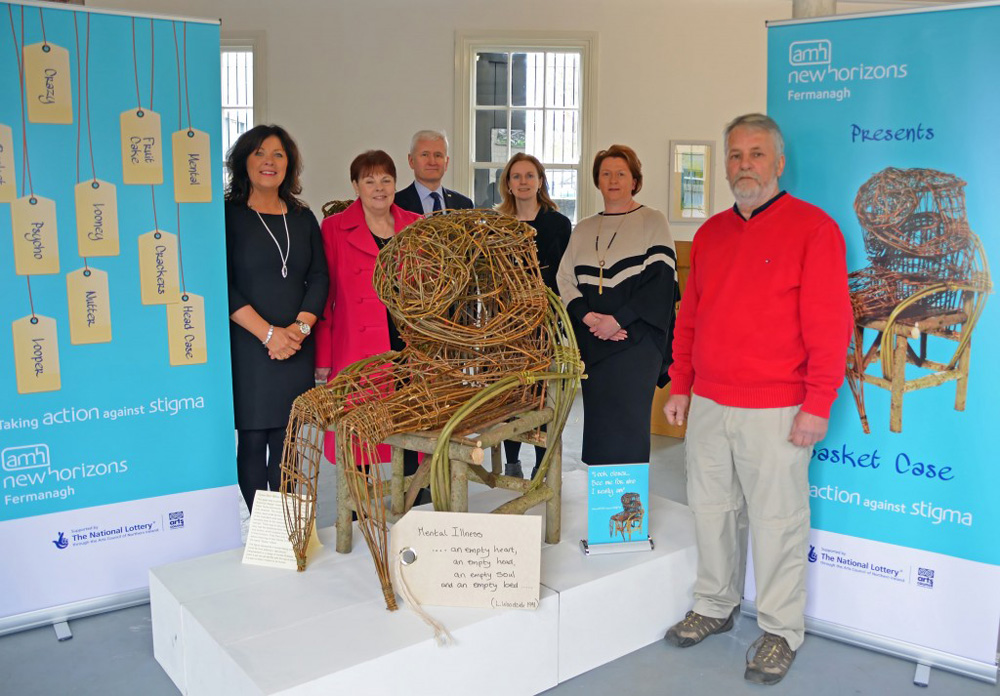Need urgent help? Please contact one of these agencies
Samaritans - 116 123
Lifeline - 0808 808 8000
Childline - 0800 1111




AMH New Horizons Fermanagh are Taking Action on Stigma with the launch of their “Basket Case” exhibition in Fermanagh County Museum on Wednesday 26th March.
An inspirational and thought provoking exhibition influenced by Drumclay Crannog, it hopes to challenge the stigma associated with mental illness and showcase the creative talents of clients at AMH’s New Horizons in Drumcoo.
Supported by the National Lottery through the Arts Council of Northern Ireland, the exhibition showcases basket weaving skills, art, poetry and creative writing, created by clients with the help of local artists and based on the findings from the ancient historical site where archaeologists excavated a wealth of weaving artefacts among others.
Experts hailed the finds as internationally significant, shedding new light on life in medieval Ireland. One of the most interesting aspects for the charity was the revelation of the Brehon Laws, the statutes which governed everyday medieval Irish life, and how progressive they were in their treatment of people with disabilities.
This led the group to think about the stigma that exists in modern society around mental illness, as a barrier to seeking help, and among the many derogatory terms they compiled, “basket case” seemed the most relevant to their project.
As Caroline Ferguson, AMH Service Manager, explained;
“There are so many derogatory and insulting terms which are commonly used to describe someone with mental health issues – looper, psycho, head case, not the full shilling etc. When someone’s mental health deteriorates ,knowing that society will ridicule them like this actually prevents them from reaching out to get help. We have taken the term “basket case” and working with local artists, clients have explored the importance of basket weaving in a Crannog community and they have produced stunning basket work, breath taking artwork in pastels and beautiful poetry. Our exhibition is now open to the public in Enniskillen Museum and I would challenge everyone to come along, enjoy the exhibits and reflect on the language which we use and the impact which it can have on the most vulnerable people in our society.”